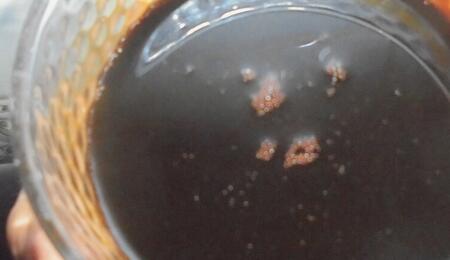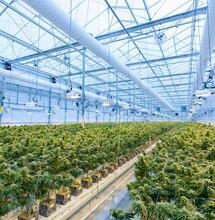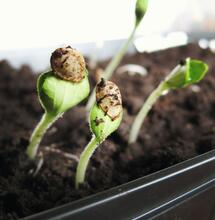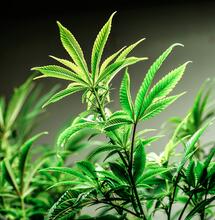All About Molasses - Packing On Weight

If you are an organic grower and have years of experience with thick, shiny gloopy nutrients, that feel as dense as can be then you will have come across a product that uses molasses. The use of molasses has been well known for years amongst the older growers, however it is something that is not discussed so much, or the benefits and relevance they have with the microbes within your grow medium.
What Are Molasses?
As people we are supposed to be accountable for the amount of sugars and salts we consume on a daily basis. That being said the same applies to our beloved plants and one way to get your plants to really pack on weight, is to feed them the equivalent of plant junk food. Naturally the plant will produce sugar in accordance with the rate of photosynthesis, as a way to feed itself unaided. As a grower you can add high levels of sugars to the plants which will be converted by the microbes in the growing medium.
Molasses are a thick shiny viscous tar like syrup which is the result of a sugarcane, sugar beet or a black strap press. As sugar is made into a white clear crystalline compound, the contents which is pressed and then boiled results in this liquid thick black mineral rich bi product. Depending on how many times the syrup is heated to boiling will determine the grade and mineral content of the final molasses.
Microbes and Carbohydrates
There is not a clear link amongst modern day organic growers and beneficial bacteria. As it something that we cannot see, we usually do not take note of the daily relevance and integrity that microbes with the soil and grow medium have with plants. Many companies will sell a grow or ripening product that is heavy and thick with a sweet caramelised salty aroma. This product will be designed to bulk up the plant, however you must remember that the microbes will convert the sugars first before giving back to the plants.
Adding molasses or any sugar based product during flowering is most beneficial, yet adding it as part of your feeding regime from day one makes a huge difference. A good comparison would be training to be a bodybuilder in the gym and having all your protein and carbs ready from the first day. The results will speak for themselves as opposed to only hammering the protein when you see the first gains..
Beneficial bacteria require carbon just like any other life form on earth and there is no better cocktail of high minerals and carbs than molasses. There is a natural symbiotic relationship that plants have with microbes that has existed for thousands of years, one of the best examples of this is the rainforest floors. The floor and root system are actually combined as one through a network of beneficial bacteria called Trichoderma.
This is actually present in Canna coco and can be bought as a powdered spore of liquid brew. If you imagine that a piece of fruit drops onto the rainforest floor and begin to decompose naturally. The microbes that interlink all the other root systems, will then be able to feed together as one giant root base.
Of course a piece of fallen fruit covering an entire rainforest may sound a bit extreme, yet as all things compose, the microbes have a job to break that down, absorb the available Nitrogen and Carbon. Think of it as a state of decomposition which is what is known as compost.
Honey Or Molasses?
You can also use honey as a rich source of carbs and the originality of it, can make a grower feel like they are really giving the plants back a natural source of organic goodness. Honey is great and you can even root clones using honey, yet there are advantages and disadvantages of using honey over molasses. Molasses are very rich in calcium, magnesium, potassium and many micro and macro minerals.
In fact in the old days when a person was sick, a spoonful of molasses or a dissolved drinkable version would be given to perk the sick person up. As well as being used to feed horses, molasses have earnt a reputation for being a rich source of all the things the human body needs. Honey is very refined and is a natural antiseptic but unfortunately falls short in terms of mineral content, therefore if you need a source of cabs then a good honey will contain an equal amount of carbs as molasses without the added benefits.
Different Types Of Molasses
When raw sugar cane is pressed, the first press that is boiled to concentrate will contain the most amount of available sugar. This first press is known as cane syrup. Used in cooking for the sweetness, the look of the syrup will be a golden brown and close to the syrup used in the states for pancakes.
The second type of molasses are known as Blackstrap molasses and this will be the one that is commercially discussed amongst organic growers and forums. As the original sucrose from the original first press has been crystallized and removed, what is left behind is a thick shiny dark syrup which is rich in vitamin B, Calcium, Magnesium, Iron and Potassium.
This is the one that growers can find will benefit their gardens the most. The third type of molasses are made using sugar beet and this is the main ingredient in Bio Bizz Bio Grow. Half of the final weight of sugar beet molasses are actual sugars in the form of sucrose, glucose and fructose. The other half which is non sugar content is high in calcium, potassium, oxalate and chloride.
There is another type of molasses which come with Sulphur. The original intention was to kill of mould and bacteria in order to increase the longevity of the shelf life. This does have a negative aspect and when using bacteria, molasses with sulphur in is not advised. Below is an analysis of a typical black strap molasses.
Organic Compost Tea
When making an microbe tea, organic compost tea or any tea for that matter, the whole point of the aeration in the water is to multiply your microbial count, from millions into billions. The oxygen will promote the aerobic bacteria to grow yet a food source to help that process is necessary.
When making a organic compost tea for microbes or for a vegging and blooming super feed, you will need the following:
Microbe Tea:
- 1 tablespoon of blackstrap molasses
- A source of beneficial aerobic bacteria
- An air pump to aerate the tea
- A source of water
- 24 hours brewing time
Vegging Microbe Tea:
- 1 tablespoon of blackstrap molasses
- A source of beneficial aerobic bacteria
- Ortega Extract • Fish Mix
- A source of water
- 24 hours brewing time
Flowering Microbe Tea:
- 1 tablespoon of blackstrap molasses
- A source of beneficial aerobic bacteria
- Powdered bat guano
- Fish mix
- A source of water
- 24 hours brewing time
Feeding organic aerated compost tea will supercharge your medium and allow the microbial colony to be sky high. The more microbes present in the medium, then the more helpers the plant has to break down the carbon rich minerals and feed back to the plant in a way the plant is most comfortable with. Beneficial bacteria is often underrated but they are so clever in their design and can be the difference in a plant deficiency and the amount of converted nutrients available.
These above are just a few examples that can be changed to a grower's preference. A good tip when working with molasses is to dissolve a thick teaspoon full into a glass of hot water to allow the syrup to become a shiny clear brown, before adding to the nutrient mix / microbe tea. Stir well and try to avoid any undissolved parts getting into air tubes and air stones.
Finally..Where Can I Get Them?
There is no reason to boycott your current favourite nutrient line or feel you have been paying for diluted molasses your whole growing career, however if you see sense in buying a source for yourself to administer with your feeding regime, then look no further than your local supermarkets and health stores. As many of the original molasses products have remained the same for decades, the cost is cheap and there are many brands which will be sulphured or unsulphured.
Good luck growing fat plants that will reward you big time if you keep those carbs coming. Peace Out!
By Stoney Tark



